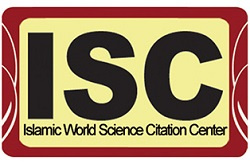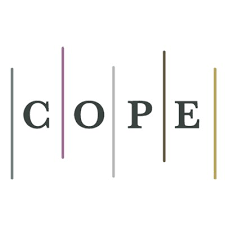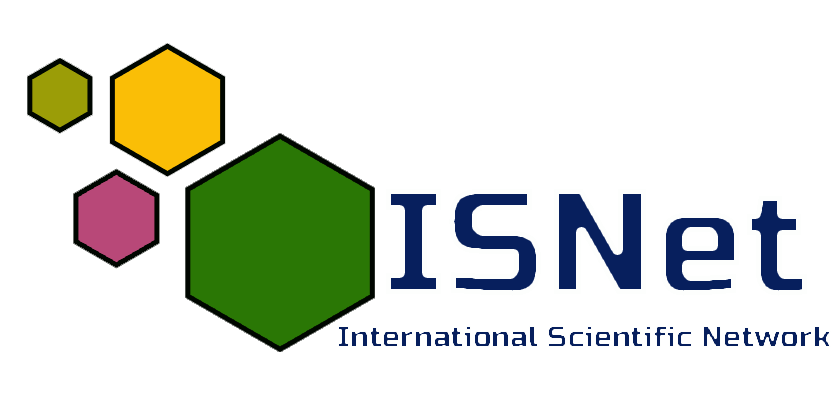The supply and demand challenges of medicines at Princess Marina Hospital, Gaborone, Botswana
DOI:
https://doi.org/10.59615/ijimes.3.3.1DOR:
https://dorl.net/dor/20.1001.1.27832678.2023.3.3.1.9Keywords:
Supply and demand challenges, Shortage of medicines, Unavailability of medicines, Princess Marina HospitalAbstract
Purpose: This paper aims to investigate medicines' supply and demand challenges at Princess Marina Hospital in light of the prevalent shortage and unavailability of medicines in both the public and private sectors globally. Despite this, medicines remain essential commodities to healthcare systems. For Botswana, the unavailability of medicines situation has worsened over the past years due to complications from HIV, and AIDS. There was a need to investigate the supply and demand challenges of medicines at Princess Marina Hospital, Botswana's largest hospital.
Methodology: A quantitative methodology using a close-ended questionnaire was used to collect data from a sample of 41 pharmacy personnel at Princess Marina Hospital. Data were analyzed using Microsoft Excel.
Findings: The supply and demand challenges identified are low manufacturing capacity by manufacturers, shortage of raw materials, poor supply chain management by local suppliers, Botswana’s uneconomical small market, inefficient logistic supply system, irrational use of medicines, Just-In-Time- Inventory, tendering system of awarding the lowest bidder, unexpected increased marketing strategies, long regulatory timelines, limited registered medicines, inadequate supply chain management skills, insufficient personnel, and poor collaboration between Princess Marina Hospital and Central Medical Stores.
Originality/Value: This paper identifies the supply and demand challenges of medicines specifically in Princess Marina Hospital. To attain the purposes of the study, an inquiry was created containing two components related to investment decisions, including financial literacy and economic factors. The inquiry was delivered to a sample of 85 people. Descriptive data were used to expound on study samples in the way that frequency, mean, and standard deviation. In addition, of highest quality-sample t-test and a natural linear regression reasoning were used to test the study theory at a consequence level of 0.05. The main findings of this study include (I) the impact of financial knowledge and literacy on investment decisions and (II) the impact of economic factors on investment decisions. The focus was on investment and savings-related decisions and preferences. Banks, financial institutions, and investors can benefit from understanding the impact of financial literacy, behavioral, and individual factors, thus inviting investors to other financial options. The study provided many recommendations, the most important of which, is by communicating financial factors and knowledge of finance to financial literacy, allowing decision-makers to anticipate economic events and plan for the future.
Downloads
References
Musazzia U. M., Di Giorgiob D., & Minghettia P. (2020) New regulatory strategies to manage medicines shortages in Europe. International Journal of Pharmaceutics, 579, 1-11. https://doi.org/10.1016%2Fj.ijpharm.2020.119171.
Ansu-Mensah M., Danquah F. I., Bawontuo V., Ansu-Mensah P., & Kuupiel D. (2020). Maternal perceptions of the quality of Care in the Free Maternal Care Policy in sub-Sahara Africa: a systematic scoping review. BMC Health Services Research, 20(911), 2-11. https://doi.org/10.1186%2Fs12913-020-05755-9.
Martei M. Y., Chiyapo S., Grover S., Ramogola-Masire D., Dryden-Peterson S., Shulman L. N., & Tapela N. (2018). Availability of WHO Essential Medicines for Cancer Treatment in Botswana. Journal of global Oncology, 4, 1-8. https://doi.org/10.1200%2Fjgo.17.00063.
Ncube B., Mars M., & Scott E. S. (2022). Telemedicine options to address identified health needs in Botswana. Digital Health, 8, 1-11. https://doi.org/10.1177%2F20552076221102768.
World Health Organization - Access to medicines and health products. (2022). Retrieved November 30, 2022 from https://www.who.int/our-work/access-to-medicines-and-health-products.
Atif M., Sehar A., Malik I., Mushtag I., Ahmad N., & Babar Z. (2021). What impact does medicines shortages have on patients? A qualitative study exploring patients’ experience and views of healthcare professionals. BMC Health Services Research, 21(827), 1-13. https://doi.org/10.1186%2Fs12913-021-06812-7.
Koehler T., & Brown A. (2017). A global picture of pharmacy technician and other pharmacy support workforce cadres. Research in Social and Administrative Pharmacy, 13(2), 271-279. https://doi.org/10.1016%2Fj.sapharm.2016.12.004.
Banks V. L., & Barras M. (2020). Economic benefits of pharmacy technicians practicing at advanced scope: A systematic review. Research in Social and Administrative Pharmacy, 16(10), 1344-1353. https://doi.org/10.1016%2Fj.sapharm.2020.01.007.
Alruthia Y. S., Alwhaibi M., Alotaibi M. F., Asiri S. A., Alghamdi B. M., Almuaythir G. S., … & Alshamsan, A. (2018). Drug shortages in Saudi Arabia: Root causes and recommendations. Saudi Pharmaceutical Journal, 26(7), 947–951. https://doi.org/10.1016%2Fj.jsps.2018.05.002.
Phuong J. M., Penm J., Chaar B., Oldfield L. D., & Moles R. (2019). The Impacts of Medication Shortages on Patient Outcomes: A Scoping Review. PloS One, 14(5), 1-17. https://doi.org/10.1371%2Fjournal.pone.0215837.
Dave C. V., Pawar A., Fox E. R., Brill G., & Kesselheim A. S. (2018). Predictors of Drug Shortages and Association with Generic Drug Prices: A Retrospective Cohort Study. Value in health, 21(11), 1286–1290. https://doi.org/10.1016%2Fj.jval.2018.04.1826.
Walker J., Chaar B. B., Vera N., Pillai A. S., Lim J. S., Bero L., & Moles R. J. (2017). Medicine Shortages in Fiji: A Qualitative Exploration of Stakeholders’ Views. PLoS ONE, 12(6), 1-16. https://doi.org/10.1371%2Fjournal.pone.0178429.
Ayati N., Saiyarsarai P., & Nikfar S. (2020). Short- and Long-Term Impacts of COVID-19 on the Pharmaceutical Sector. DARU Journal of Pharmaceutical Sciences, 28(2), 799–805. https://doi.org/10.1007%2Fs40199-020-00358-5.
Dranitsaris G., Jacobs I., Kirchhoff C., Popovian R., & Shane L. G., (2017). Drug Tendering: Drug Supply and Shortage Implications for the Uptake of Biosimilars. Clinico Economics and Outcomes Research, 9, 573–584. https://doi.org/10.2147%2Fceor.s140063.
Atif M., Malik I., Mushtaq I., & Asghar S. (2019). Medicines shortages in Pakistan: A qualitative study to explore current situation, reasons and possible solutions to overcome the barriers. British Medical Journal, 9(9), 1-15. https://doi.org/10.1136%2Fbmjopen-2018-027028.
Modisakeng C., Matlala M., Godman B., & Meyer J. C. (2020). Medicine shortages and challenges with the procurement process among public sector hospitals in South Africa; findings and implications. BMC Health Services Research, 20(234), 2-10. https://doi.org/10.1186%2Fs12913-020-05080-1.
Maniadakis N., Holtorf A. P., Corrêa J. O., Gialama F., & Wijaya K. (2018). Shaping Pharmaceutical Tenders for Effectiveness and Sustainability in Countries with Expanding Healthcare Coverage. Applied Health Economics and Health Policy, 16(5), 591–607. https://doi.org/10.1007%2Fs40258-018-0405-7.
Shukar S., Zahoor F., Hayat K., Saeed, A., Gillani A. H., Omer S., ... & Yang C. (2021). Drug Shortage: Causes, Impact, and Mitigation Strategies. Frontiers in Pharmacology, 12, 1–18. https://doi.org/10.3389%2Ffphar.2021.693426.
Fox E. R., & McLaughlin M. M. (2018). American Society of Health-System Pharmacists. ASHP guidelines on managing drug product shortages. Am J Health-Syst Pharm, 75(21), 1742-1750. https://doi.org/10.2146%2Fajhp180441.
Melku L., Wubetu M., & Dessie B. (2021). Irrational drug use and its associated factors at Debre Markos Referral Hospital’s outpatient pharmacy in East Gojjam, Northwest Ethiopia. SAGE Open Medicine, 9, 1–8. https://doi.org/10.1177%2F20503121211025146.
Dixit A., Kumar N., & Kumar S. (2018). Use of Generic Medicines: Challenges and Benefits. Journal of Health Management, 20(1), 84-90. https://doi.org/10.1177%2F0972063417747747.
Rather I. A., Kim B. C., Bajpai V. K., & Park Y. H. (2017). Self-medication and antibiotic resistance: Crisis, current challenges, and prevention. Saudi Journal of Biological Sciences, 24(4), 808-812. https://doi.org/10.1016%2Fj.sjbs.2017.01.004.
Iqbal M. J., Geer M. I., & Ahmad Dar P. (2017). Medicines Management in Hospitals: A Supply Chain Perspective. Systematic Reviews in Pharmacy, 8(1), 80-85. https://doi.org/10.5530%2Fsrp.2017.1.14.
Gebremariam E. T., Gebregeorgise D. T., & Fenta T. G. (2019). Factors contributing to medicines wastage in public health facilities of South West Shoa Zone, Oromia Regional State, Ethiopia: a qualitative study. Journal of Pharmaceutical Policy and Practice, 12(29), 1-7. https://doi.org/10.1186%2Fs40545-019-0192-z.
Kgosietsile B., Enwereji P. C., & Jordaan J. (2022). Assessing the effect of the lack of pharmaceutical manufacturing on healthcare provision in Botswana. International journal of Innovation in Management Economics and Social Science, 2(4), 1-19. https://doi.org/10.52547/ijimes.2.4.1.
Downloads
Published
How to Cite
Issue
Section
License
Copyright (c) 2023 Nkaelang Modutlwa, Sehlule Moyo, Ndumiso Tshuma

This work is licensed under a Creative Commons Attribution 4.0 International License.












